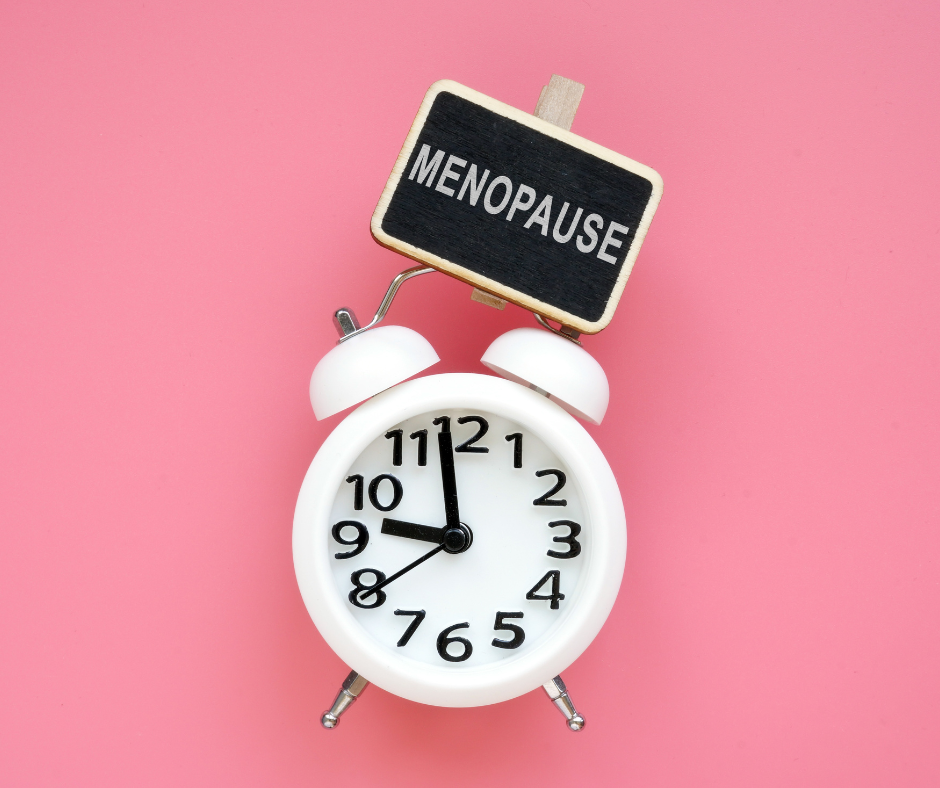Let’s pull the curtain back on something we’re living through but rarely talk about in a real, informed way: Perimenopause and Menopause.
I’m not here to sugarcoat it, and I’m definitely not here to tell you “it’s just part of getting older.”
This is a major life transition.
One that deserves clarity, support, and respect.
Because if you’ve been feeling off (more tired, more anxious, more like a stranger in your own skin) it’s not “just you.”
It’s hormones. It’s real. And it’s time to talk about it.
What Is Perimenopause?
Perimenopause usually begins in your 40s (sometimes earlier). But here’s the kicker:
It can sneak in years before your periods actually stop.
This is when your hormones (especially estrogen and progesterone) start to fluctuate wildly.
And when that happens, so do you.
Common Symptoms:
- Anxiety or irritability out of nowhere
- Poor sleep
- Heavy or irregular periods
- PMS that suddenly feels extreme
- Breast tenderness
- Brain fog (Where did I put my keys again?)
- Low libido
- Crushing fatigue
And yet… so many women I know go to their doctor and get told:
“It’s stress.”
“It’s depression.”
“Here’s an antidepressant or some birth control.”
No.
It’s perimenopause.
And you deserve better answers.
What Happens in Menopause?
Menopause is defined as 12 months with no period (usually around age 51.)
At this point, your estrogen, progesterone, and even testosterone take a major nosedive…and stay there.
This can bring:
- Hot flashes
- Vaginal dryness
- Mood swings
- Weight gain
- Insomnia
- Joint pain
- A flatlined sex drive
Again, this isn’t something to suffer through in silence.
It’s your next chapter. And you get to write it with clarity and power.
Your Hormones
I’ve learned so much from Dr. Sharon Reiss who is a true champion for women in midlife.
Here’s her hormone breakdown (and why it matters so much for us Her Turn women):
-
Estrogen
This hormone does it all: energy, brain, skin, bones, and reproductive health. But it drops hard in menopause.
Dr. Reiss explains we have three types:
- Estradiol (E2): The strongest and most important before menopause.
- Estriol (E3): Weaker, but helpful for vaginal dryness (often in bioidentical creams).
- Estrone (E1): Takes over post-menopause but doesn’t do as much.
Symptoms of low estrogen?
- Hot flashes
- Vaginal dryness
- Night sweats
- Mood dips
- Memory struggles
- Thinning skin
Dr. Reiss recommends bioidentical estradiol (especially as a transdermal cream or patch) so it mimics your body’s rhythm and skips the liver stress of pills.
-
Progesterone
This one is your emotional anchor. It helps you sleep, supports your mood, and keeps estrogen in check.
In perimenopause, progesterone is usually the first to go, which is why so many of us suddenly feel unbalanced.
Symptoms of low progesterone?
- Anxiety
- Insomnia
- PMS
- Heavy or irregular periods
- Breast tenderness
Dr. Reiss strongly supports bioidentical progesterone (not synthetic progestins). It’s safer and more effective for helping you feel like yourself again.
Her Turn Means No More Guessing
Here’s what I want you to know:
You’re not lazy.
You’re not losing it.
You’re not broken.
You’re navigating one of the most significant hormonal shifts of your life.
And you deserve real support, not outdated advice.
In the Her Turn community, we’re openly discussing these changes, educating ourselves, and advocating for better care.
We’re done being handed prescriptions that silence symptoms without asking why they’re happening.
Your Body, Your Turn
Perimenopause and menopause are not the end of anything.
They are a transition.
A wake-up call.
A new beginning.
And with the right tools, like hormone knowledge, bioidentical options, and a supportive community, you can move through it with clarity and power.
So if you’re tired of the confusion, the gaslighting, or the shame?
You’re not alone.
Join us.
In Her Turn, we’re rewriting the story of midlife.
One honest, empowered conversation at a time.

